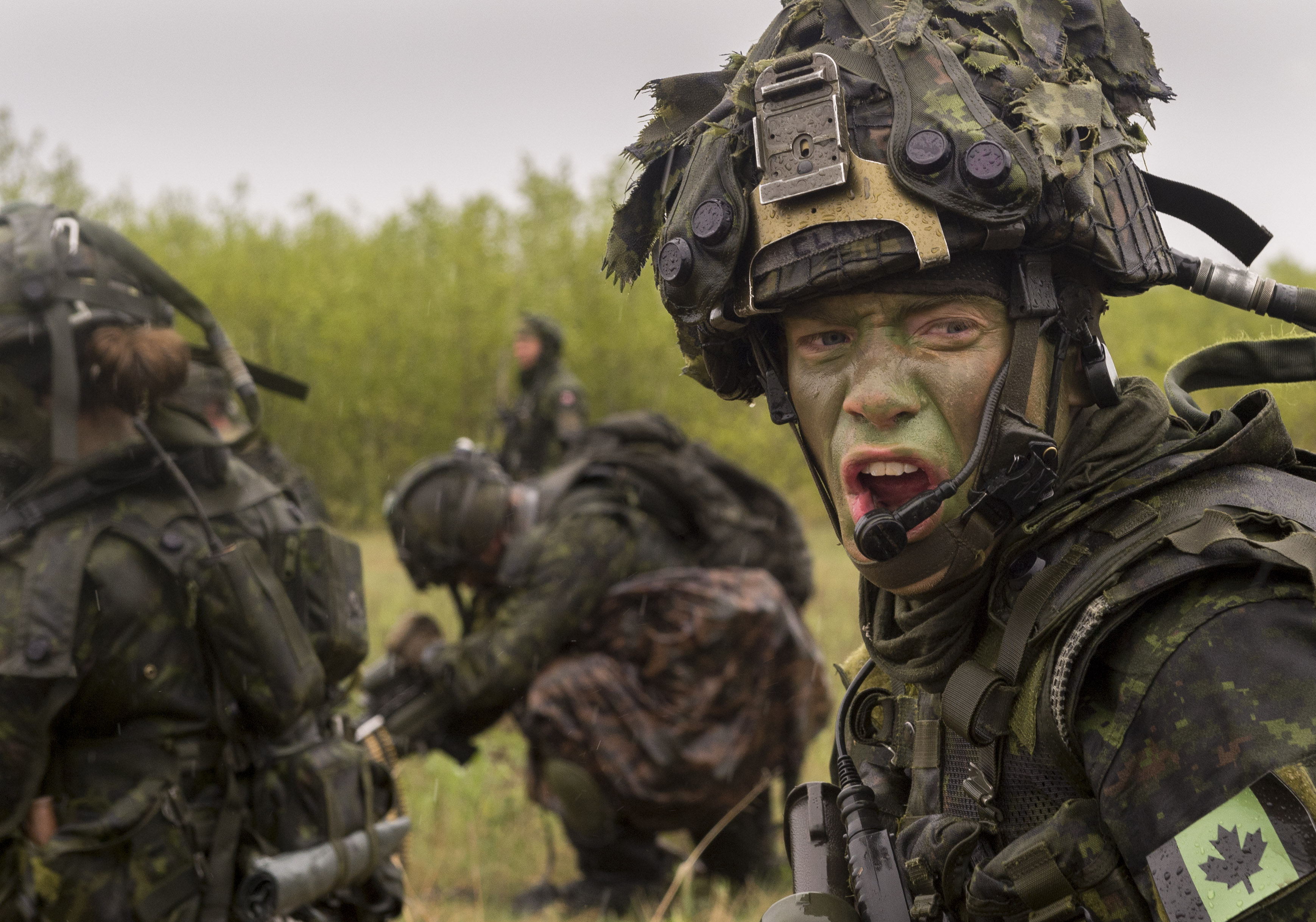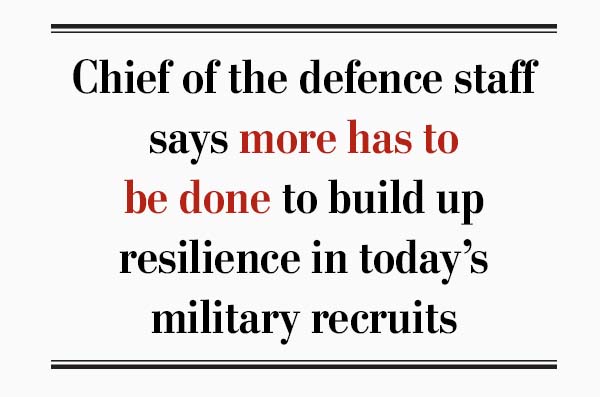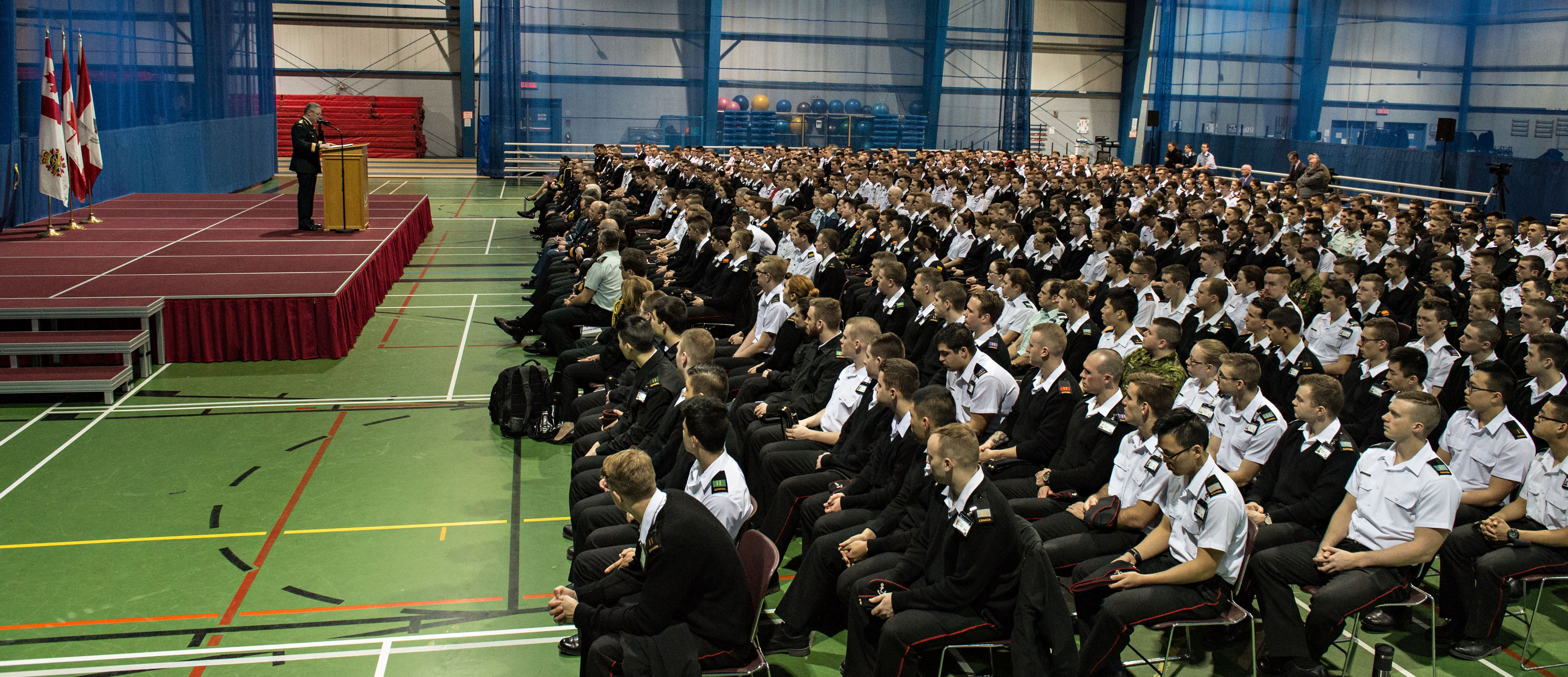
Second Lieutenant Trevor Clark of The Queen’s Own Rifles of Canada yells orders to his troops while advancing on an enemy position during Exercise Maple Resolve in Wainwright, Alta. [Sgt. JF Lauzé, Combat Camera]

The chief of the defence staff says the Canadian military needs to make more effort to ensure its members have the right stuff to endure the challenges of military life.
Speaking to the House of Commons Standing Committee on National Defence, General Jonathan Vance described plans to fundamentally change the military’s health-and-wellness regime to better secure the overall well-being of soldiers, sailors and aircrew and guarantee those who are sick and injured every opportunity to remain productive contributors.
But, while stating that barriers to care must be removed, Vance said change has to start with the very basics of who the military recruits and how it trains and prepares them for the life they are going to lead.
“We need to work on resilience,” the chief told MPs on June 20. “We need people who can handle the rigours of military duty.
“Military duty’s hard. It’s hard for a reason—because we’re put in challenging arenas. They must be able to handle the rigours and the stress of military operations.”
Vance said the Canadian Armed Forces are going to retain ill and injured members longer, make better use of their skills and ensure they receive all the care and opportunity they deserve—to a point.
“There’s no question about it, if you cannot be a productive member of the armed forces then at some point we have to part ways,” he said. “But I think that there can be a great deal more done over a longer period of time to ensure” every possible effort is made to retain as many members as possible.
Vance has been saying for some time now that the military’s human resources management needs change. It’s shaping up to be a legacy project of the chief’s three-year tenure, now past its halfway point.
With its defence policy review, released June 7, the government is ostensibly putting meat on the bones of those statements. The 8,805-word document has a sharp focus on military personnel issues, promising to grow the forces by 3,500, to 71,500, and devote more resources to career development, benefits and retirement processes.
More than $198 million in additional monies have been earmarked for health-related initiatives. And a new unit with a staff of 1,200 will be devoted to managing the transition of soldiers leaving the forces.
Defence Minister Harjit Sajjan told committee members that ensuring the health and well-being of forces members was “the No. 1 ask” in a series of town hall meetings and online discussions held during the year- long policy review, which considered 20,000 public submissions.
Vance suggested the military has been ushering ill and injured CAF members out of the ranks too readily, too quickly and without proper support. “People leaving the armed forces in the past have gone through a bureaucratic process that was essentially designed to get you out and move you on,” Vance said. “We need to professionalize that.”
Outgoing members will be subjected to detailed health screenings. Those with lingering health issues, mental or physical, will be given the care they need, both before and after they leave, he said.
Vance said the medical branch will grow under the new plan, and more resources will be devoted to “first-line care” on deployments as well as at home.

Chief of the Defence Staff General Jonathan Vance adressed staff and students at the Royal Military College of Canada in March. [Cpl Mark Schombs,Combat Camera]
“At this juncture, our timelines to release someone on what we call a permanent category—permanently disabled—need to change so that if someone will take longer than what we proscribe right now, but they will recover, well then maybe we give them more time.”
Support services to families will also be expanded, along with research into family- and gender-based violence.
The stigma attached to mental-health issues, such as post-traumatic stress disorder, has been a major barrier to effective treatment in the past.
Vance promised “a concerted effort to alter the structure of someone’s career path so that it doesn’t become an overriding concern to avoid seeking mental-health treatment at the same time that you ought to be for fear of losing your job.”
Sajjan said investing early in efforts to “build resilience” is at the core of the new defence policy.
“It’s a matter of significant concern to us, obviously, that anybody who is injured needs to be cared for,” said Vance. “It’s important that mental health in general is something that people can talk about and that we, first and foremost, eliminate barriers to discussion and barriers to care. That’s Job 1.”
But he said more research is needed into the causes of mental-health injury along with “far more work…on diagnosis, prevention [and] screening, so that we can understand that when someone arrives into the armed forces, do they have a lack of resilience that needs to be worked on?”
Advertisement






















